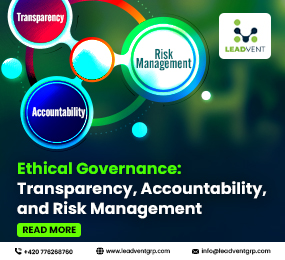ESG and Climate in Africa: Paving the Way for a Sustainable Future
Africa stands at a critical juncture in its development journey, facing both profound challenges and compelling opportunities in sustainability and climate action. As the continent grapples with the growing impacts of climate change, the integration of Environmental, Social, and Governance (ESG) principles has emerged as a vital framework guiding businesses, governments, and communities toward a more resilient and equitable future.
The Climate Reality in Africa
Although Africa contributes just a small fraction of global greenhouse gas emissions, it experiences disproportionate impacts from climate change, including severe droughts, flooding, and rising sea levels. These environmental shifts threaten livelihoods, economic progress, and social stability across the continent. Climate change could potentially reduce Africa’s GDP by 3 to 5 percent annually by 2030, underscoring the urgent need for action to build resilience and mitigate risks.
In response, African nations and stakeholders are increasingly prioritizing climate-friendly solutions. Renewable energy investments, climate-smart agriculture, and sustainable infrastructure projects are gaining momentum as part of a broader commitment to transition toward low-carbon economies. The private sector, which accounts for a significant share of economic activity and employment, plays a pivotal role in driving these green initiatives.
The Emerging Role of ESG
ESG principles—addressing environmental stewardship, social responsibility, and corporate governance—have become central to Africa’s approach to sustainable development. More companies on the continent recognize that embedding ESG into their strategies is not only about compliance but also about unlocking long-term value and building trust with investors, customers, and communities.
Integrating ESG enhances risk management and fosters innovation, allowing businesses to align profitability with positive societal impact. For instance, companies investing in renewable energy or water-smart technologies not only reduce their ecological footprint but also improve their competitive positioning in increasingly ESG-conscious markets.
Governments are supporting this shift through regulatory reforms, incentives for green investments, and frameworks that encourage transparency and accountability. Across Africa,
standards and policies are evolving to reflect global ESG best practices while responding to local realities and priorities.
Challenges and Opportunities
Despite the progress, Africa faces notable challenges in ESG adoption. Limited access to affordable green financing, fragmented regulatory environments, and infrastructure deficits can impede the scaling of sustainable projects. Additionally, the diversity of economic and social conditions across countries demands approaches tailored to local contexts rather than a one-size-fits-all model.
However, these challenges also present opportunities. By fostering partnerships between the public sector, private companies, and civil society, African countries can catalyze investment in green technologies and social innovation. Regional initiatives promoting collaboration and knowledge sharing are gaining traction, helping to harmonize ESG standards and mobilize capital toward impactful projects.
Learn more on our website: https://www.leadventgrp.com/events/esg-and-climate-africa-summit/details
For more information and group participation, contact us: [email protected]
Leadvent Group - Industry Leading Events for Business Leaders!
www.leadventgrp.com | [email protected]
















